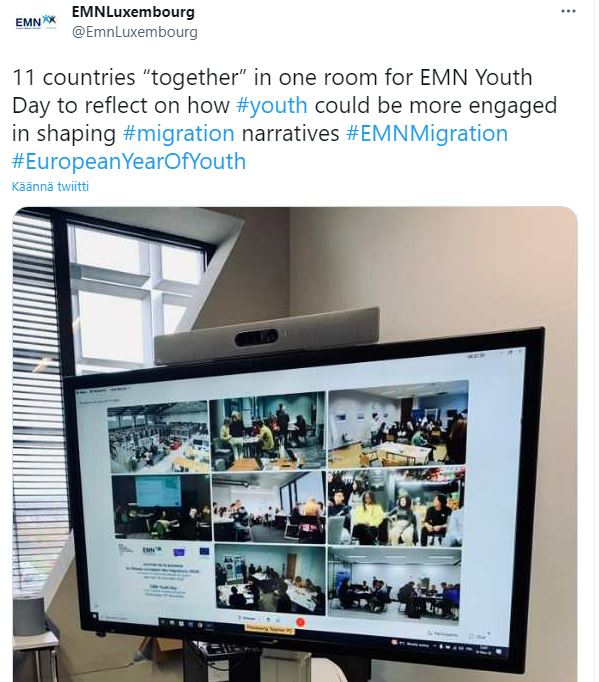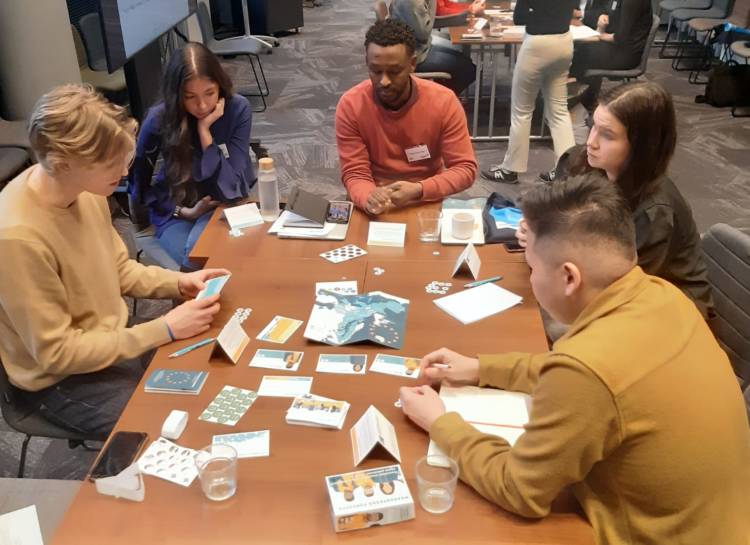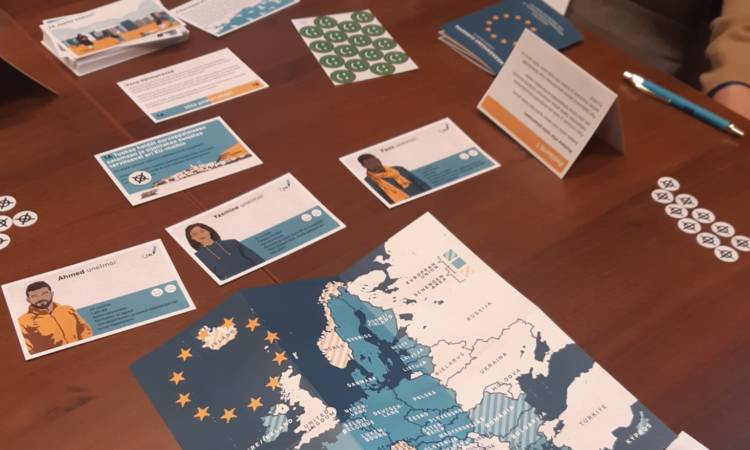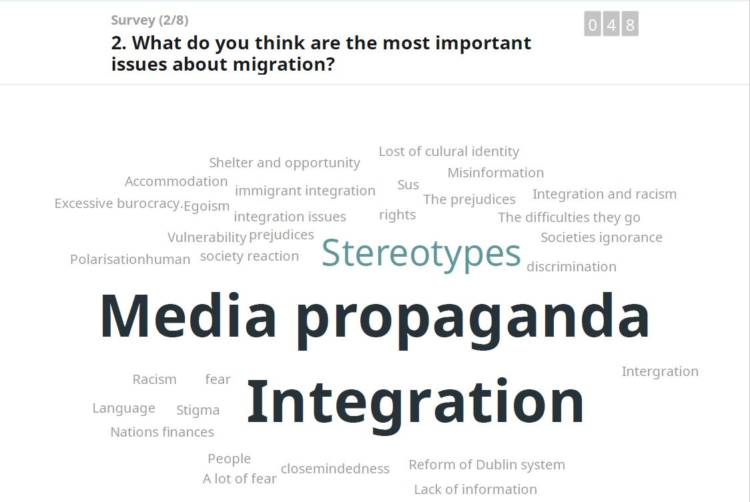EMN Youth Day brought together young people and EU officials to discuss migration in Europe
Young people had the chance to voice their views on migration policy directly to European Commission officials at the EMN Youth Day on 16 November 2022.

What do young people in Europe really think about migration? What is the future of migration policy in Finland and the EU? How can young people be more engaged in the immigration policy debate? These were some of the questions discussed on 16 November simultaneously in Finland, Belgium, Cyprus, Czech Republic, France, Latvia, Lithuania, Luxembourg, Slovenia, Slovakia and Spain at the European Migration Network Youth Day.
The European Commission declared 2022 as the European Year of Youth(avautuu uuteen ikkunaan, siirryt toiseen palveluun) after many EU countries recognised that the covid-19 pandemic has negatively affected the lives of many young people. According to the Commission, the year aims to recognise the role of Europe’s youth in creating a better future – greener, more inclusive and digital.
As part of the Year of Youth, the European Commission wanted the European Migration Network to involve young people from its Member States in the public debate on migration policy. Member States organised their own Youth Day events, which took place simultaneously in 11 EU countries. The event was chaired from Brussels by Commission officials. What makes the event significant, was that young people from different EU countries could directly interact with Commission officials, asking questions and commenting.
EMN Finland organised its own Youth Day at the Bank conference venue. In addition to the EMN team, the event was moderated by Anna Peltoniemi, the Finnish coordinator of the European Year of Youth from the Finnish National Board of Education and Lotta Tuominen, the Finnish EU Youth Delegate 2022. A total of 10 young people from different upper secondary schools, universities and NGOs took part.

The event kicked off from Brussels with presentations from the European Commission. Michael Shotter, Director of the Commission’s Directorate-General for Migration and Home Affairs (DG HOME), and Magnus Ovilius, President of the EMN, welcomed the participants. Tina Zournatzi, Director of DG HOME’s Communication Unit, then spoke about how positive narratives play a major role in how people perceive migrants in host countries. Anita Vella, from the Commission’s Legal Pathways and Integration Unit, then spoke about the upcoming EU Youth Mobility Scheme, which aims to open up new opportunities for mobility for young people from EU countries and young people from third countries.
The morning session was concluded by TED-talker and activist Nour Machlah(avautuu uuteen ikkunaan, siirryt toiseen palveluun), a Portuguese former Syrian refugee, who told his own story and called for the importance of migrants’ inclusion in society. Machlah pointed out that the less migrants are included in society, the more negative stereotypes about them are reinforced.
After the morning’s presentations, the young people were able to step into the shoes of decision-makers themselves as they got to test out the Destination Europe(avautuu uuteen ikkunaan, siirryt toiseen palveluun) educational learning tool. Developed by the Commission, the educational learning tool is designed to demonstrate the different levels of decision-making in migration policy via role-play. Players play the roles of different decision-makers and try to solve and debate hypothetical migration scenarios.

There were some reservations about how such complex issues could be crammed into the game format, but on the other hand, after the game many felt that role-playing helped to make the decision-making process more concrete and forced them to think about things from the opposite perspective. The game also highlighted how complex things become the higher up the decision-making hierarchy you go.
From the morning’s presentations, many participants seemed to remember Tina Zournatzi’s talk about how public opinion on migration is often formed by narratives on migration rather than facts. Zournatzi cited a statistic from Eurobarometer(avautuu uuteen ikkunaan, siirryt toiseen palveluun) which shows that in seven out of ten EU countries the public significantly overestimates the size of their migrant population. Many people seem to have the idea that there are migrants everywhere.
This figure seemed startling to many participants and therefore the Finnish participants highlighted the need to eliminate disinformation and propaganda from public debate and to have a factual basis for decision-making. Public debate can only be made less black and white with the right information. With more shades of grey, the debate is more difficult, but all the more worthwhile.
The way we talk about migration affects the decisions we make. Young people agreed on this across the board. Policy makers need to highlight positive narratives about the opportunities that immigration can bring to countries of origin and destination, as well as to the migrants themselves. Young people stressed the need to see people behind the numbers.
The Helsinki event highlighted an important need among youth: There should clearly be more migration-related events. Participants noted that many young people are hesitant to discuss migration issues because they find the topic too complex and inflammatory. They find it difficult to form their own opinions and feel that they have nothing to say on the subject. The consensus was that migration should be discussed more in schools, for example. Otherwise, the threshold for participation in public debate seems too high. The EMN Youth Day was praised for its efforts to lower this threshold and clarify some of the intricacies of migration policy to young people.
